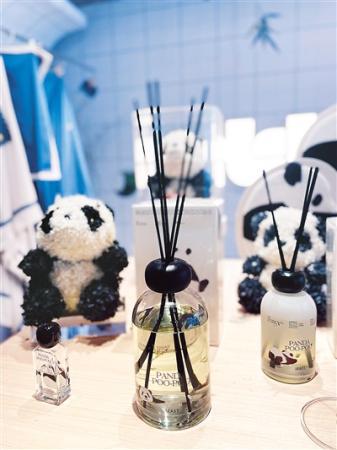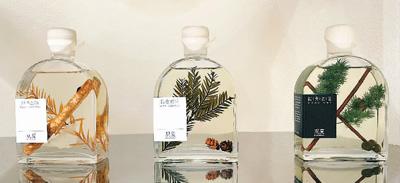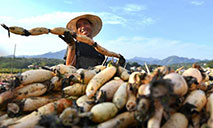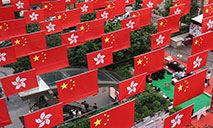Domestically-developed, culturally-oriented fragrance products see wider popularity among Chinese consumers
China's perfume and fragrance markets have continued to boom with a shift towards a new trend in which China's domestic brands, featuring products showcasing Chinese culture, have gained increasing popularity among consumers.

Photo shows a series of fragrance products themed on various plants. (People's Daily Overseas Edition/Wang Jingyue)
China's fragrance market was valued at about $800 million in 2017, while the size of the perfume market meanwhile amounted to between $5 billion to $6 billion. By the end of last year, the overall value of these two markets had each doubled, rising to nearly $1.6 billion and $12.6 billion, respectively, despite the ongoing impacts of the COVID-19 pandemic, as was indicated in multiple industry reports.
One particularly interesting trend in China's perfume and fragrance markets is that until only a few years ago, they had been dominated by big international name brands. However, many Chinese fragrance brands have since emerged as a new driving force in the domestic fragrance market.
"Scientific research has shown that people are able to distinguish more than 1 trillion varieties of scents, but previously China's market for 'aromatherapy art' was yet to be tapped," said Lou Nanshi, who founded Fragrance Library, a Chinese fragrance brand, recalling the reason why she decided to start the business after returning to China from overseas studies in New Zealand.

Photo shows a series of fragrance products themed on various plants. (People's Daily Overseas Edition/Wang Jingyue)
Apart from exploring the traditional perfume market in which the major international players had an edge, Lou's company also launched a series of aromatherapy wash supplies, including body wash and liquid soap products, that also serve as carriers for various scents.
Fragrance Library's products have won a wide recognition among domestic consumers, as have other domestic brands focusing on fragrances. During this year's 618 Midyear Shopping Festival, sales of aromatic beads on one of the country’s major e-commerce platforms soared by more than 10 times year-on-year.
Among the wide array of fragrance products sold across China, the popularity of products with themes based on Chinese culture has been rapidly on the rise.
With regards to Fragrance Library's star product, named "cold boiled water", Lou explained that "since all Chinese people are familiar with the taste of cold boiled water, we don't even have to provide an introduction when launching a series of products with this name."
This year, Fragrance Library also launched brand-new limited regional versions of its "cold boiled water" fragrance products that integrate the urban memory of local Chinese people living in different cities.
For example, the Beijing version of "cold boiled water" fragrance adopts elements of Livistona chinensis, which allows people to reminisce about the old Beijing days when residents often would have a Livistona chinensis-made fan unfolded in their hands.
Lou explained that aromatherapy products launched by domestic brands are able to stir up wonderful memories and invoke positive emotions among Chinese people.
"A few years ago, a French team came to southwest China's Yunnan province to develop a fragrance brand linked to Pu'er tea, but it turned out to be a vain attempt. I believe the reason behind such a failure is that their products have had nothing to do with the memories of Chinese people," explained Shen Li, co-founder of To Summer, a Chinese fragrance brand.
Shen added that the advantage of domestic brands is that they are more familiar with local Chinese culture and can relate their products to the warm memories of the Chinese people.
Xiao Xiao, who works in a museum, is a loyal fan of domestic fragrance products. "If you give an aromatherapy product to your foreign friends, the product can deepen their understanding of Chinese culture – and only Chinese people can make such products," said the woman.
Photos
Copyright © 2021 People's Daily Online. All Rights Reserved.










